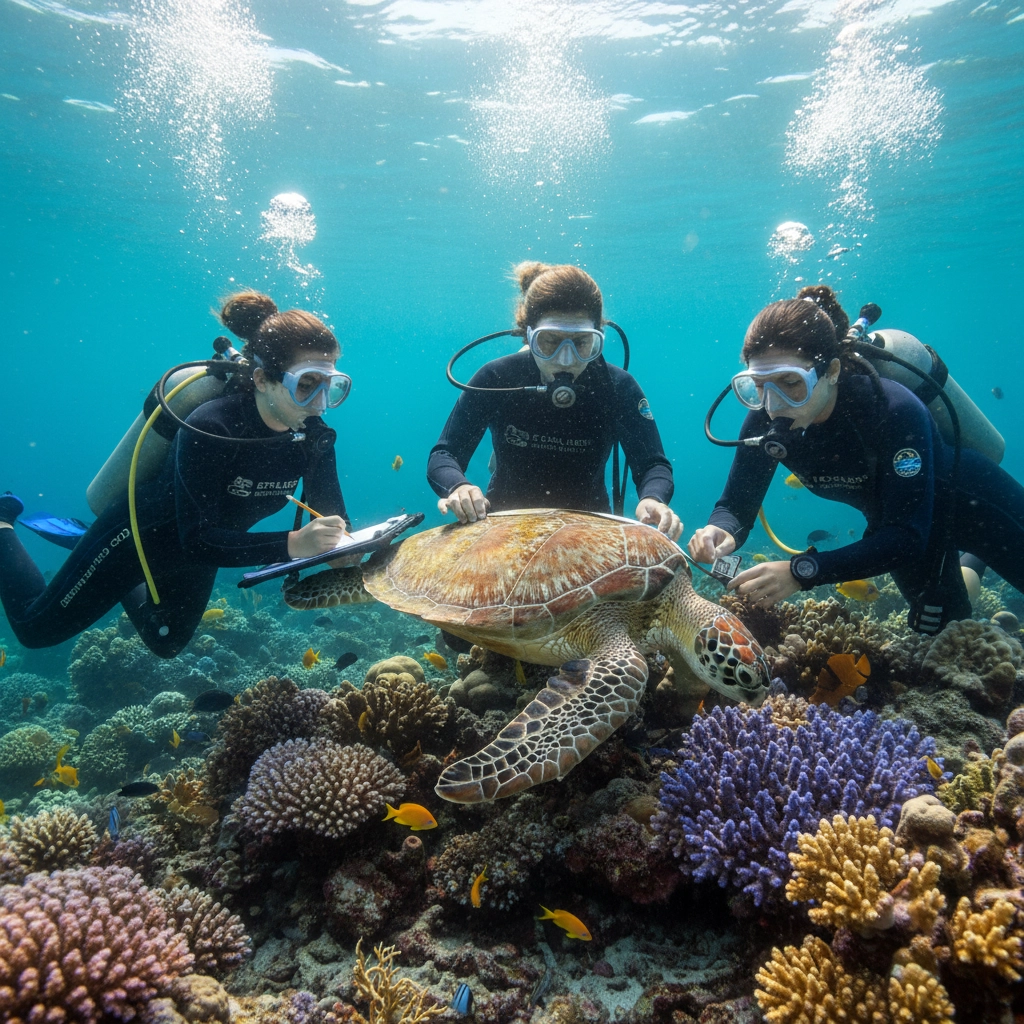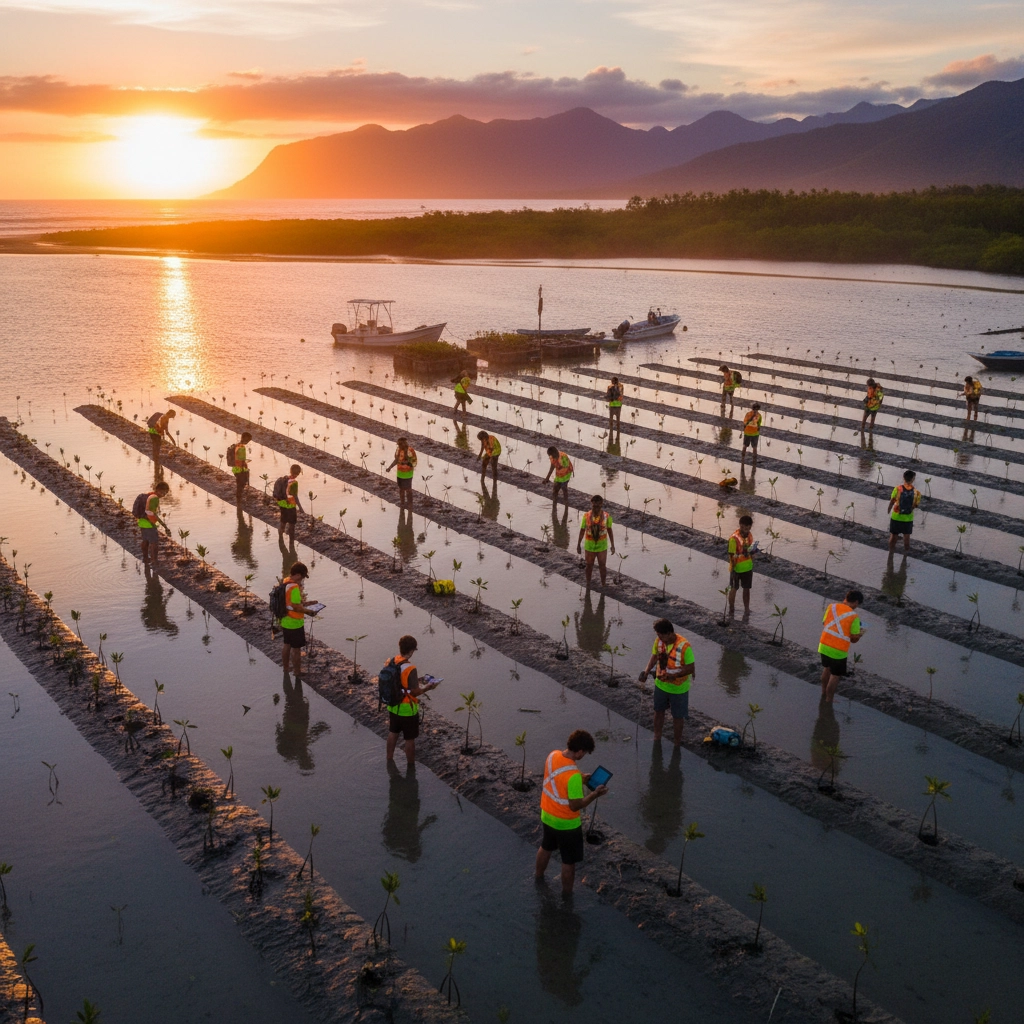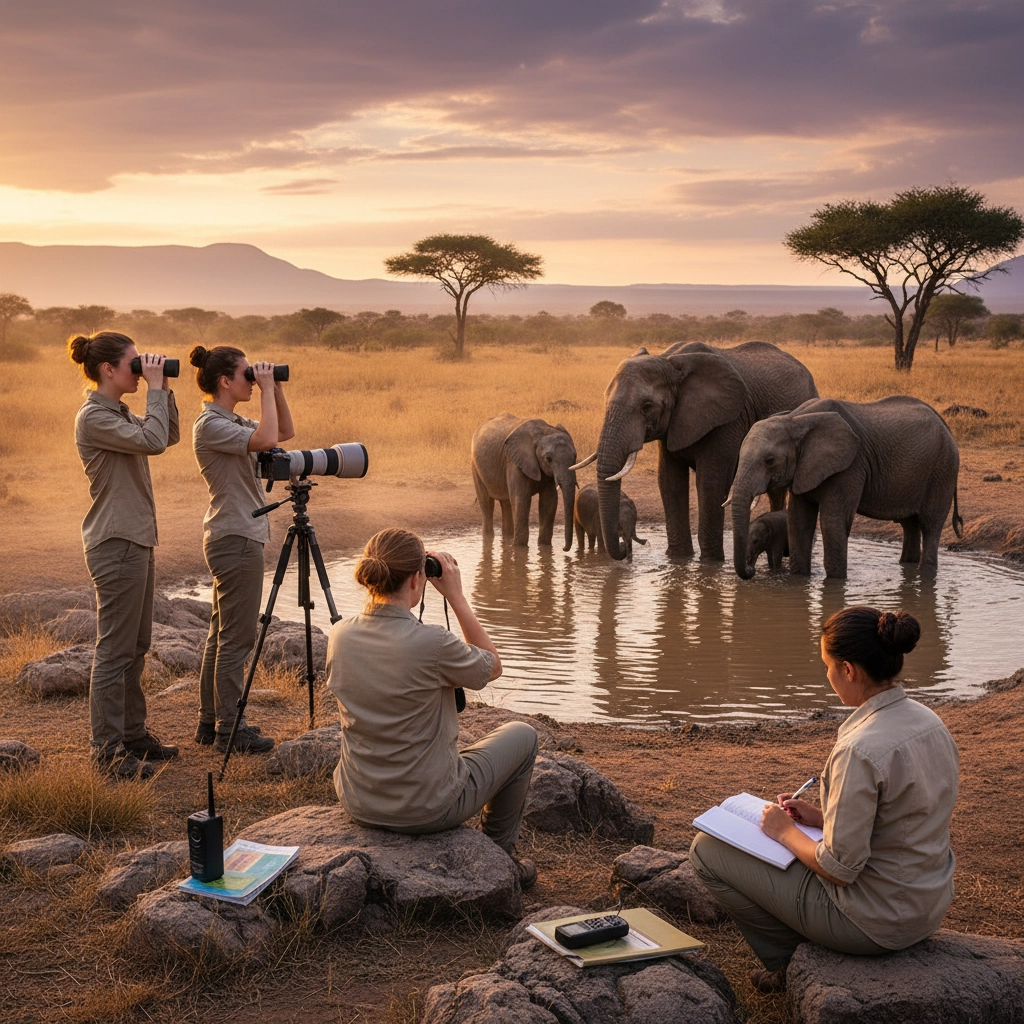Wildlife Conservation Student Travel: 10 Programs Where Students Actually Make a Difference
- Caleb Mullenix
- Oct 21, 2025
- 5 min read
Preparing students for meaningful wildlife conservation experiences requires selecting programs that prioritize hands-on research contributions over passive observation. The most impactful educational travel opportunities place students directly into ongoing conservation efforts, where their work contributes to scientific databases, species protection initiatives, and habitat restoration projects that yield measurable results.
Understanding the difference between traditional wildlife viewing trips and authentic conservation programs is essential for educators seeking transformative learning experiences. Effective conservation travel programs share several critical characteristics: students collect data used in actual scientific research, participate in habitat restoration with measurable environmental outcomes, and work alongside professional conservationists and local communities on established projects.
Marine Conservation Programs That Create Real Impact
1. Sea Turtle Research and Protection - Mediterranean Focus
Marine Conservation Awareness programs in Greece position high school students as active participants in sea turtle research on Kefalonia Island. Students monitor nesting activity during critical breeding seasons, assist with scientific data collection protocols, and help protect hatchlings during their vulnerable first journey to the sea. This program demonstrates how student involvement directly supports long-term species monitoring efforts that inform conservation policy decisions.
Ensure your students understand the rigorous nature of this fieldwork: participants wake before dawn to conduct beach surveys, maintain detailed observation logs, and follow strict protocols designed by marine biologists. The data collected contributes to the Mediterranean Association to Save the Sea Turtles (MEDASSET) research database, making student participation genuinely valuable to ongoing conservation efforts.
2. Coral Reef Restoration - Caribbean Waters

Caribbean-based marine biology programs through organizations like Broadreach create opportunities for students to participate in coral reef restoration while earning diving certifications. During 17-day expeditions across St. Barts, St. Kitts and Nevis, students contribute to coral monitoring projects, participate in reef cleanup initiatives, and assist with underwater photography documentation used in scientific reports.
Advise students that this program requires physical fitness and comfort in marine environments. Participants engage in night dives to observe nocturnal marine behavior, conduct fish population surveys, and contribute to coral health assessments that support regional conservation databases.
3. Mangrove Ecosystem Restoration - Costa Rica
Costa Rica's Pacific Coast offers exceptional opportunities for students to engage in mangrove restoration and sea turtle conservation through programs like those offered by Rustic Pathways. Students plant native mangrove species, monitor coastal erosion patterns, and participate in sea turtle nest protection activities that directly support ecosystem health.
Emphasize to students the connection between their restoration work and broader ecosystem stability. Mangrove restoration activities include measuring seedling survival rates, monitoring water quality parameters, and documenting wildlife population changes: all data that contributes to long-term ecosystem management strategies.
Terrestrial Wildlife Conservation Programs
4. Endangered Species Research - Caribbean Focus
Florida International University's IRES Wildlife Conservation Training Program provides undergraduate and graduate students with year-long immersion in endangered parrot species research in St. Vincent and the Grenadines. Students conduct wildlife and vegetation surveys, perform socio-economic interviews with local communities, and operate specialized field instruments to collect data for peer-reviewed scientific publications.
Prepare students for the comprehensive nature of this program: the three-phase curriculum spans Spring through Fall semesters, including four weeks of intensive summer fieldwork. Participants contribute to cetacean conservation efforts and parrot species monitoring that directly informs regional conservation strategies.
5. African Wildlife Conservation - Tanzania

SIT Study Abroad's Tanzania program combines academic study with field-based conservation work in one of Africa's most biodiverse regions. Students examine the political and ecological dimensions of wildlife management while participating in conservation initiatives that address complex relationships between human communities and protected wildlife areas.
Advise students to prepare for challenging discussions about conservation ethics, community engagement, and sustainable development. The program requires students to develop research projects that contribute to ongoing conservation debates and policy discussions.
6. Multi-Ecosystem Conservation - Global Focus
Putney Wildlife and Conservation Programs transport students to diverse ecosystems including Costa Rican rainforests, Belizean coastal waters, Baja's Sea of Cortez, and Churchill, Canada: the polar bear capital of the world. Students work directly with field scientists on established research projects, contributing to wildlife monitoring efforts in national parks and conservation areas.
Ensure students understand the varied skill sets required for different ecosystems: Arctic programs require cold weather preparation and polar bear safety protocols, while tropical programs demand heat tolerance and rainforest navigation skills.
Research-Intensive Conservation Programs
7. Ecological Field Research - Multiple Locations
Ecology Project International offers individual student placements in ongoing conservation research projects across multiple ecosystems. Students integrate into existing research teams where they collect field data, assist with species monitoring, and contribute to long-term ecological studies that inform habitat management decisions.
Emphasize the professional development aspects of these programs: students learn to use scientific equipment, maintain research protocols, and contribute to data analysis processes used by conservation organizations and government agencies.
8. Community-Based Conservation - Various Global Locations

Global Leadership Adventures combines service learning with leadership development, placing students in conservation projects where they work alongside local communities and conservation professionals. Programs focus on sustainable development initiatives that balance wildlife protection with community economic needs.
Prepare students for cultural sensitivity requirements and community engagement protocols. Success in these programs requires respect for local customs, willingness to learn from community members, and understanding of conservation challenges from multiple perspectives.
Programs Emphasizing Scientific Documentation
9. Marine Wildlife Research - Australia and New Zealand
Dual-country programs spanning Australia and New Zealand provide students with opportunities to work on wildlife rehabilitation and conservation projects across diverse marine ecosystems. In Australia, students serve as Great Barrier Reef advocates, assisting with research and conservation initiatives on one of the world's most threatened coral systems.
Advise students about the comprehensive nature of this program: participants work with marine wildlife rehabilitation centers, contribute to reef monitoring databases, and engage with traditional Maori conservation practices in New Zealand. The cultural components enhance understanding of indigenous approaches to environmental stewardship.
10. Sailing-Based Marine Research - British Virgin Islands
ActionQuest programs combine sailing instruction with marine biology research, housing students aboard yachts while they earn sailing and scuba diving certifications. Students conduct marine biology studies, participate in fish population surveys, and contribute to oceanographic research while developing nautical skills.
Ensure students understand the unique living arrangements and teamwork requirements of vessel-based programs. Participants share close quarters, rotate through sailing duties, and maintain research equipment while navigating Caribbean waters.
Appleseed Expeditions Conservation Opportunities
Appleseed Expeditions offers several programs that align with meaningful conservation work. Our Costa Rica expeditions include sea turtle monitoring, rainforest restoration projects, and community-based conservation initiatives where students contribute to ongoing research efforts. Our Belize programs focus on barrier reef conservation, where students assist with coral monitoring and marine species documentation.
Students participating in our Florida Eco-Tour programs contribute to Everglades restoration efforts and sea turtle research along the Atlantic coast. These programs prioritize hands-on conservation work that produces measurable environmental benefits while providing students with authentic research experiences.
Selecting the Right Conservation Program
Begin by researching program partnerships with established conservation organizations, universities, and government agencies. Programs that contribute to peer-reviewed research, maintain long-term monitoring databases, and work directly with local communities provide the most meaningful student experiences.
Evaluate program outcomes carefully: effective conservation travel should result in published research contributions, documented habitat improvements, or measurable species protection outcomes. Students should return with understanding of scientific methodology, appreciation for conservation challenges, and practical experience in field research techniques.
Create pre-trip preparation requirements that include conservation biology concepts, local ecosystem study, and cultural preparation for international programs. Emphasize the importance of student commitment to scientific protocols, respectful community engagement, and environmental stewardship principles.
Ensuring students engage in authentic conservation work rather than "voluntourism" requires careful program selection and thorough preparation. These ten programs demonstrate how educational travel can create meaningful contributions to wildlife protection while providing transformative learning experiences for participating students.



Comments